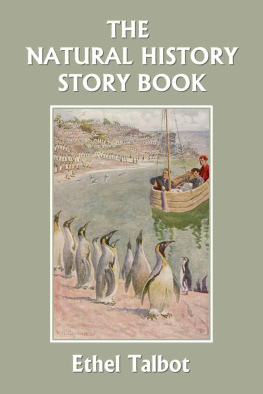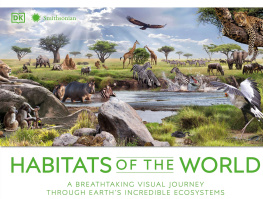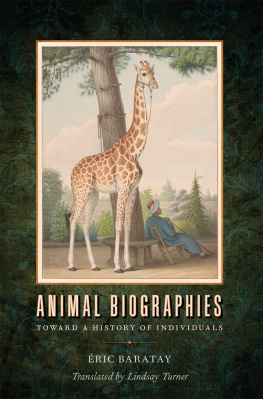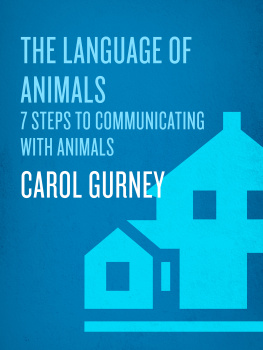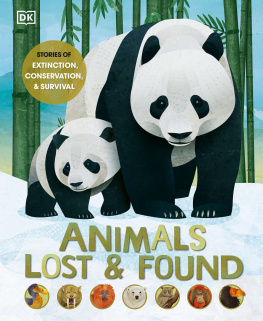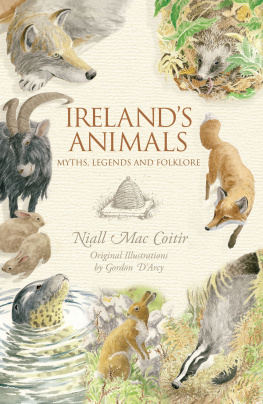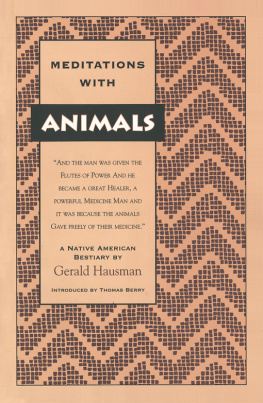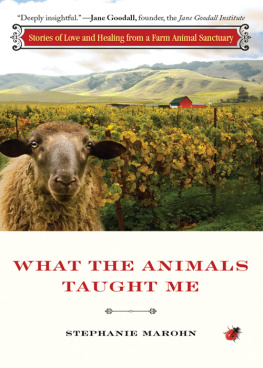Ethel Talbot - The Natural History Story Book
Here you can read online Ethel Talbot - The Natural History Story Book full text of the book (entire story) in english for free. Download pdf and epub, get meaning, cover and reviews about this ebook. year: 2008, publisher: Yesterdays Classics, genre: Detective and thriller. Description of the work, (preface) as well as reviews are available. Best literature library LitArk.com created for fans of good reading and offers a wide selection of genres:
Romance novel
Science fiction
Adventure
Detective
Science
History
Home and family
Prose
Art
Politics
Computer
Non-fiction
Religion
Business
Children
Humor
Choose a favorite category and find really read worthwhile books. Enjoy immersion in the world of imagination, feel the emotions of the characters or learn something new for yourself, make an fascinating discovery.
- Book:The Natural History Story Book
- Author:
- Publisher:Yesterdays Classics
- Genre:
- Year:2008
- Rating:5 / 5
- Favourites:Add to favourites
- Your mark:
- 100
- 1
- 2
- 3
- 4
- 5
The Natural History Story Book: summary, description and annotation
We offer to read an annotation, description, summary or preface (depends on what the author of the book "The Natural History Story Book" wrote himself). If you haven't found the necessary information about the book — write in the comments, we will try to find it.
The Natural History Story Book — read online for free the complete book (whole text) full work
Below is the text of the book, divided by pages. System saving the place of the last page read, allows you to conveniently read the book "The Natural History Story Book" online for free, without having to search again every time where you left off. Put a bookmark, and you can go to the page where you finished reading at any time.
Font size:
Interval:
Bookmark:
All rights reserved. No part of this book may be reproduced or retransmitted in any form or by any means without the written permission of the publisher.
This edition, first published in 2010 by Yesterday's Classics, an imprint of Yesterday's Classics, LLC, is an unabridged republication of the work originally published by as The Story Natural History by Thomas Nelson and Sons, Ltd. in 1919. This title is available in a print edition (ISBN 978-1-59915-295-0).
Yesterday's Classics republishes classic books for children from the golden age of children's literature, the era from 1880 to 1920. Many of our titles are offered in high-quality paperback editions, with text cast in modern easy-to-read type for today's readers. The illustrations from the original volumes are included except in those few cases where the quality of the original images is too low to make their reproduction feasible. Unless specified otherwise, color illustrations in the original volumes are rendered in black and white in our print editions.
H OW slowly and carefully the huge Elephant in the Zoo moves along! He looks like a great patient nurse as he carries a load of cheering, laughing boys and girls on his back. "Better be careful," he seems to be thinking; "mustn't jog them about too much. Nice to be able to give a treat to the little chaps; and aren't they enjoying it!" But, dear me! what a different way he used to behave in his old home on the wide plains of Africa years and years ago.
For this particular fellow is an African Elephant. He seems much the same to our eyes, perhaps, as his Indian cousin, but there are differences, if we know how to look out for them. To begin with, the African Elephant is the larger of the two, and is darker in colour. Then he has larger ears and larger eyes; and while the Indian Elephants are not famous for their tusks, their relations in Africa are very valuable big game indeed, if only for the ivory that their splendid long tusks afford.
The African Elephants are much more dangerous than the Indian Elephants, too, and that may be the reason, partly, why they have never been trained to help in the work of their country as their Indian cousins have. No doubt they would toss up their tails and trumpet at the very idea. They love their freedom, and they mean to keep it. They fear man, and they mean to keep away from him. And the few of them that are captured, and shipped away from their land to be shown in Zoos, must have very different memories of the life that they used to lead.
What kind of memories? Oh, jolly, jolly ones. The Baby Elephant in Africa joins with its mother on her journeys only a week or two after it is born, and is a very game little creature indeed, with adventures from the very first. Of course, it has no tusks, this babythough to call it "little" and "baby" seems rather ridiculous, as it weighs two hundred and forty-five pounds at birth, and is quite as large as a sheep; but its trunk is there all right, groping about and finding out all about the world, like a great big movable finger. It can fan itself with its big ears, too, just as its mother and father do in the hot weathernobody seems to have to teach it that. It is funny to see the Baby Elephant having its first meals: with its head below its mother's fore legs, turning back its small trunk, and drinking, drinking, drinking its fill of milk; for little Elephants are six months old before they begin to learn the way to feed themselves with soft grass and leaves by the help of their own waving trunks.
The Elephants choose their homes away deep in the very quietest, stillest part of the forest. There they feed most of the day, and at sundown they make their way to the nearest watering-place. A herd of them goes together at a good swinging pace, very much unlike the steady tread of the tame Elephants at the Zoo. Very often it is a family herd, with the mothers and babies going in front to set the stride, and the huge father Elephants coming along behind. There is always a leader to every herd, whose commands must be obeyed; and if danger appears, one of his orders will be for the mothers and children to fall behind the stronger members of the company. Danger sometimes meansMAN. Wild Elephants have a terror of man; and I have read that if a child passes at a quarter of a mile to windward of a herd, that is sufficient to put a hundred Elephants to flight.
There is little wonder, really, that African Elephants are afraid of man; they have been hunted to the death for generations and generations. Elephant hunts were the sport of kings very long ago. The ivory from their tusks has always been coveted by traders as well as hunters. The natives find the great beasts useful, too, in many ways. The flesh of the Elephant is used by them as food, its trunk and feet being supposed to be particularly delicious, and its fat is greatly valued. Its hide makes shields for them, water-bags for their journeys, and whips for their steeds; while its ivory will always fetch its price.
But Elephant hunts by the African natives are not only undertaken because of the value of the animal; often these hunts are necessary on account of the dreadful damage that the great wild creatures do. For they have appetites that match their tremendous size, and on their way to the river at night they think nothing of plundering crops; of tearing up whole groups of trees with their trunks, just to chew up the roots and branches and get at the sap. With their sharp tusks, too, they plough up whole miles of ground in search of bulbs; and over newly sown land whole herds will tramp, making a waste as they go. They are always a little afraid of fences, but they mean to get to the water all the same.
It must be a fine sight to see them drinking and watering themselves after the heat of the day. Without bending its head, the Elephant dips its long trunk into the water, and filling it, puts it to its mouth. A second trunkful is then probably used for bathing purposes; and after that, the whole herd, as likely as not, may go for a swim for a few miles down the stream, the young ones being held up by their mother's trunk as soon as they feel tired, or climbing up to her back and sitting there when they feel inclined to take a rest.

AFTER THE HEAT OF THE DAY.
Elephants are very sociable and affectionate with each other. A sportsman was once obliged to leave a wounded Elephant in the South African Bush, while he returned to camp for more ammunition. On his return, many hours afterwards, he saw from some distance that the great beast was standing, unable to move on account of its broken leg, but trumpeting loudly for help. Its calls were answered by another elephant, which came up, gave the sufferer a drink of water from its own trunk, and then did its best to help the wounded friend to escape into the Bush again. This story may seem strange, but there are many other tales told by the natives of the ways in which Elephants help each other from traps or pitfalls, and warn each other of danger.
But Elephants can be fierce enemies for all that. They do not, as a rule, attack man unless they are provoked; but if they are , there is no sport so dangerous in all the world, perhaps, as Elephant hunting. Female Elephants have been known to give chase to well-mounted sportsmen, and to overtake them, killing them with their tusks and feet. They are cunning and clever enemies, too, who will turn suddenly and charge at the unsuspecting hunter, for whom there is little escape. The African natives attack them with javelins and spears; the sportsman follows him either on foot or on horseback, with hopes of placing a bullet behind the great beast's ear; while a particularly fierce and warlike tribe of Arabs is said to face a charging Elephant with no more defence than a sword and shield. Dr. Livingstone gives a very interesting account of an African Elephant hunt which he once had the luck to watch.
Font size:
Interval:
Bookmark:
Similar books «The Natural History Story Book»
Look at similar books to The Natural History Story Book. We have selected literature similar in name and meaning in the hope of providing readers with more options to find new, interesting, not yet read works.
Discussion, reviews of the book The Natural History Story Book and just readers' own opinions. Leave your comments, write what you think about the work, its meaning or the main characters. Specify what exactly you liked and what you didn't like, and why you think so.

